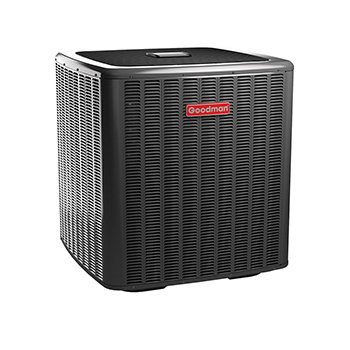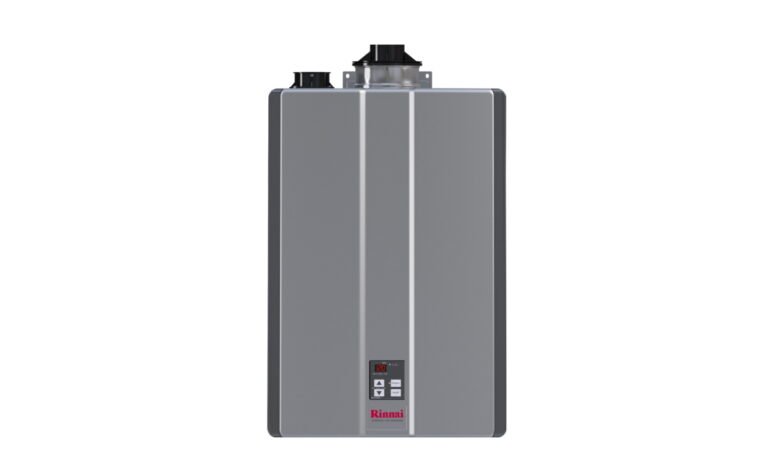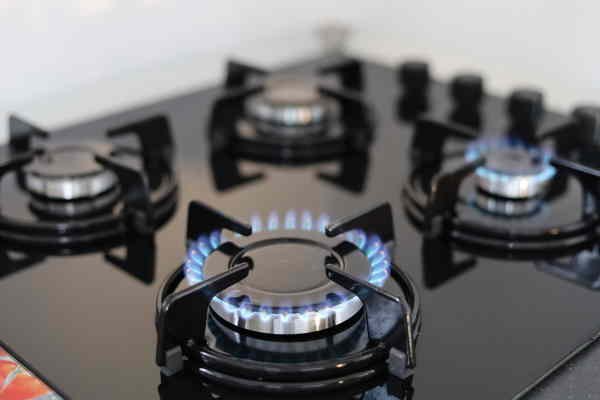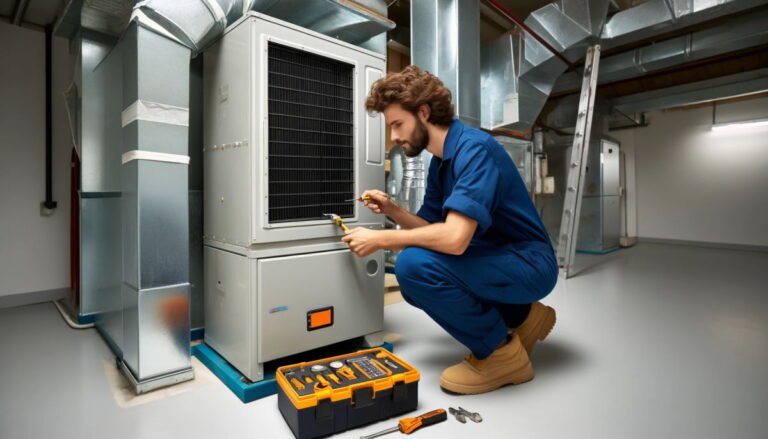Compare Gas vs. Electric Home Heating: See the Differences
Are you considering your heating options, like gas vs. electric home heating, as two of the most used fuel sources? Understanding whether it’s cheaper to heat a home with natural gas or electricity and which type is better for the environment is crucial.
Knowing that about 60% of household energy is used for space heating and close to 20% for water heating, it’s essential to make a wise decision when investing in such an expensive but vital part of your home.
The goal is to choose an HVAC system that can significantly reduce energy use and heating costs without sacrificing your comfort or harming the environment.

As you probably know, there are various heating systems and energy sources available, including gas, electric, solar, and oil-powered systems.
Regardless of whether you prefer an HVAC system or a portable spot heater, many factors must be considered, such as unit and installation costs, energy rates, the location of your house, energy usage, house size, layout, and more.
Choosing the Best Home Heating System: Key Factors to Consider
Fuel Availability
Electricity is readily available almost everywhere in North America, making it a convenient option for many homeowners. However, natural gas, which requires a pipeline for delivery, is not as widely accessible, particularly in remote areas. Homeowners in rural locations often rely on propane gas, which, while a good substitute for natural gas, is more expensive and requires regular deliveries.
Solar power is currently the cheapest fuel option, followed by natural gas, oil, and electricity.
However, fuel prices can fluctuate, so it’s important to stay informed about potential changes that could impact the cost-effectiveness of your heating choice.
Costs
When evaluating gas vs. electric home heating options, homeowners should consider both the initial cost of the system and ongoing operating expenses, including hookup fees, storage, installation, maintenance, and service.
Installing a new gas furnace can cost between $2,500 and $7,500, while an electric furnace ranges from $1,500 to $5,500 installed. Maintenance for gas systems averages $100 to $200 annually, whereas electric systems may only need $50 to $100 every few years .
These factors can help you make an informed decision based on your budget and local rates.
When it comes to cost savings, home heating with natural gas seems more affordable.
Efficiency
The efficiency of a heating unit directly impacts your heating costs. The more efficient the unit, the more you’ll save on energy, and less will be wasted. Aim for a unit with a high-efficiency factor, like over 80%. This means 80% of the energy goes towards heating, while 20% is lost. This is typical for gas-powered furnaces. On the other hand, electric heat pumps can be 3-4 times more efficient. Look for the Energy Star logo to ensure high efficiency.
Electric heating systems are nearly 100% efficient because all the generated heat is used for heating, without any combustion gases. Electric power is measured in kilowatts.
Gas heating systems, however, often lose heat through the chimney as they expel exhaust gases. Homeowners can opt for ultra-efficient condensing models that use the latent heat of flue gases to increase efficiency.
Pollution
Energy from solar, wind, and geothermal systems is the cleanest, renewable, and free. It doesn’t produce greenhouse gases or pollute the environment like coal, gas, and oil do.
While gas heaters are cleaner than coal and oil heaters, they still emit greenhouse gases that directly pollute the environment.
On the other hand, electric heaters don’t pollute the environment directly. However, the production of electricity at power plants can cause pollution. The level of pollution depends on the type of fuel used to generate the electricity. If we could switch to generating electricity solely from renewable sources like wind and solar, we’d significantly reduce environmental harm, as these systems have a minimal carbon footprint.
Reliability
Reliability is a crucial factor in choosing a heating system. Electric heating systems are generally more reliable because they have fewer mechanical parts that can break down.
However, during power outages, gas heating systems with a battery backup or manual ignition can be advantageous, as they do not rely on the electrical grid.
Installation Complexity
The complexity and cost of installing a heating system can vary significantly. Electric heating systems are typically easier and less expensive to install, especially in homes that do not have existing gas lines.
In contrast, installing a gas heating system may require additional work, such as running gas lines and venting, which can increase the overall installation cost and time.
Maintenance Requirements
Maintenance is another critical consideration. Gas heating systems often require more frequent maintenance to ensure safe and efficient operation. Regular inspections and cleanings are necessary to prevent gas leaks and maintain proper function.
Electric heating systems, in contrast, generally require less maintenance, reducing long-term upkeep costs and effort.
Safety
Safety should always be a top priority when selecting a heating system. Electric systems are generally considered safer because they do not produce combustion gases and have a lower risk of fire or explosion.
However, modern gas systems are designed with multiple safety features, such as carbon monoxide detectors and automatic shutoff valves, to mitigate risks.
Comfort and Air Quality
Different heating systems can impact indoor air quality and comfort levels. Gas heating systems often provide a more consistent and comfortable heat, as they can produce warmer air more quickly.
However, they can also introduce combustion by-products into the home if not properly vented. Electric systems, particularly heat pumps, can also contribute to better air quality by reducing indoor humidity levels and circulating filtered air.
Incentives and Rebates
Many governments and utility companies offer incentives and rebates for installing energy-efficient heating systems. These financial incentives can significantly offset the initial costs of high-efficiency gas or electric systems.
Choosing the Right Home Heating Distribution System
Forced-air heating systems and hydronic systems are the most popular heat distribution methods in North America, designed for central or whole-house heating. Other options include space heaters, which do not use ductwork and are intended for spot (room) heating.
Forced-air systems primarily use gas furnaces, electric resistance heaters, and heat pumps to heat the air, which is then distributed throughout the house using an electric blower and a network of ducts.
For room heating, homeowners often use electric baseboard and convection heaters, oil radiators, and wood or pellet stoves, which generally heat only one room directly and without ductwork.
In hydronic heating systems, homeowners can use electric, gas, or oil-powered boilers to heat water. The heated water is then circulated to radiators, baseboard heaters, or a floor radiant heating system, from which it warms the surrounding air.
The Benefits of Home Heating with Electricity
Convenient and Easy Access
Electricity is by far the most widely used energy source, offering a convenient and accessible heating option. It can heat both air and water, either on its own or combined with other heating systems.
Electricity powers various appliances, including forced-air systems, hydronic systems, room heaters, and in-floor heating systems.
In areas where electricity is cheaper than other fuel sources, it becomes the best option for home heating. This is especially true if other heating systems are not feasible or if you can fully utilize air-to-air and geothermal heat pumps.
High Efficiency
Electric heating is one of the most efficient, affordable, and reliable heating options available. At the point of use, electric heating systems are close to 100% efficient.
Electric heat pumps, in particular, can achieve efficiencies over three times that of traditional heating systems. For example, while electric resistance heaters convert nearly all the electricity into heat, heat pumps can deliver three to four units of heat for every unit of electricity consumed.
Affordability
Typically, electric heating systems have lower upfront costs and are easier to install and maintain compared to gas systems. They don’t require regular servicing like gas heaters.
In warmer regions, where heating demand is lower, the difference in operating costs between electric and gas systems can be even smaller. Installation costs for electric furnaces range from $1,500 to $5,500, whereas gas furnaces can range from $2,500 to $7,500.
Safety
Electric heating systems are very safe since they do not involve burning materials or residues, combustible gases, exhaust fumes, unpleasant odors, or the risk of carbon monoxide leaks. This makes them a safer choice for indoor heating.
Longevity
Electric heating systems are long-lasting because they have fewer moving parts and do not require venting, sooting, or dealing with incomplete combustion that can affect performance and reduce efficiency. Electric furnaces can last up to 30 years, which is twice as long as many gas heaters.
Versatility
Another advantage of using electricity is its versatility. It can be used not only for heating but also for air conditioning and dehumidifying. Electric heating systems such as baseboard heaters, wall heaters, and radiant floor heating systems utilize electric resistance heating elements, which provide consistent and reliable heat.
Applications
Electric heating systems include a variety of options like baseboard heaters, wall heaters, and radiant floor heating systems. These systems use an element or resistor through which electricity passes, generating heat. This method, known as electric resistance heating, is efficient and effective for various heating applications.
Disadvantages
Higher Operating Costs
While electricity is widely available throughout North America and has lower initial installation costs, it tends to be more expensive to operate on a monthly basis compared to gas heating systems. This is primarily due to the higher cost of electricity per unit of energy.
Slower Heating
Electric heaters typically take longer to heat a space compared to gas appliances. Gas heaters can quickly warm up a room, providing immediate comfort, while electric systems may require more time to achieve the desired temperature.
Environmental Impact
Electricity is not always an eco-friendly fuel source, especially if it is produced using non-renewable and polluting technologies such as coal burning. According to the U.S. Environmental Protection Agency (EPA), electricity production is the largest source of greenhouse gas emissions in the country.
Approximately 67% of electricity in the U.S. is generated from burning fossil fuels, primarily coal and natural gas, which significantly contributes to environmental pollution and climate change.
The Benefits of Home Heating with Gas
Popular and Widely Used
Heating a home with natural gas is one of the most popular options in North America. Natural gas is an affordable, clean, and environmentally friendly heating method, which is why most homes are heated by gas-powered forced-air and hydronic systems. Even if you don’t currently have access to natural gas, it may be worth investing in and switching from electricity or propane due to its benefits.
Cost Savings
Gas furnaces are generally cheaper to operate, especially in colder climates. Experts suggest that even gas furnaces with lower efficiency can be more cost-effective than the most efficient electric furnaces. Additionally, you may achieve further savings by purchasing a high-efficiency furnace that qualifies for tax rebates.
Fast Heating
Gas furnaces heat much faster than electric ones, thanks to their powerful gas burners. Once the burner ignites, the furnace can immediately utilize all available power, whereas electric heating elements take time to reach full capacity, delaying the heating process.
Additional Benefits
Switching to natural gas not only offers cost and efficiency advantages but also provides consistent and reliable heating. Natural gas systems are known for their durability and require less frequent maintenance compared to other heating systems, ensuring long-term reliability and performance.
Disadvantages
Higher Initial Cost
Gas furnaces, unit’s and venting installation require more investments than electric ones. And if you don’t have a gas connection, that cost becomes much higher. Since they require a venting system to remove products of combustion to the outside, it might be needed to call a professional technician to deal with the installation and troubleshooting.
Availability
While natural gas for home and water heating is widely used, the piping infrastructure is not available in all areas of the US and Canada, pushing homeowners to consider other options, including propane and oil. Unfortunately for many, both fuel types require fuel storage tanks and frequent delivery, increasing the price and producing more hassle.
Risk of Gas Leaks
The burning of natural gas creates carbon monoxide gas that is dangerous to people when exposed to higher levels. Gas can also leak when in transport or delivered to a home, harming the environment. To avoid problems, always consult an expert, schedule regular maintenance, and install a CO detector.
Shorter Lifespan
Due to problems with incomplete gas combustion, dirty elements, sooting, and venting issues, gas furnaces usually last less than their electric counterpart.
Need More Maintenance
Gas furnaces require regular cleaning and professional maintenance because smaller particles produced by the gas burner can accumulate on the heater’s elements and affect its performance and longevity.
Highlights of Pros and Cons of Gas vs. Electric Heating
| Gas heating | Electric heating | |
| Upfront costs | High | Low |
| Operating cost | Low | High |
| Heating rate | Fast | Slow |
| Maintenance | Frequent | Regular |
| Safety | CO, gas, and exhaust leaks | High voltage |
| Installation difficulty | Complex (requires a pro) | Simple (requires an electrician) |
| Lifespan | 10-15 | Up to 30 |
Comparing the Costs
According to fixr.com, a new electric furnace can cost you up to $2500 while a gas type up to $4000, excluding installation.
As per the same source, installing the electric type can cost you between $1000 and $1500 and installing a gas furnace between $1500 and $2000.
Conclusion
As you can see from the above text, it is essential to consider all the pros and cons of gas vs. electric home heating to buy the right furnace or heater.
Gas heating is recommended for homeowners in colder climates, while electric heat is the best option for those in warmer regions or where natural gas is not available.
Additionally, highly efficient natural gas furnaces and electric heat pumps that are Energy Star compliant are the most effective options for your home. These are particularly recommended if you are buying a new HVAC unit or replacing an old one.
More Articles About Home Heating
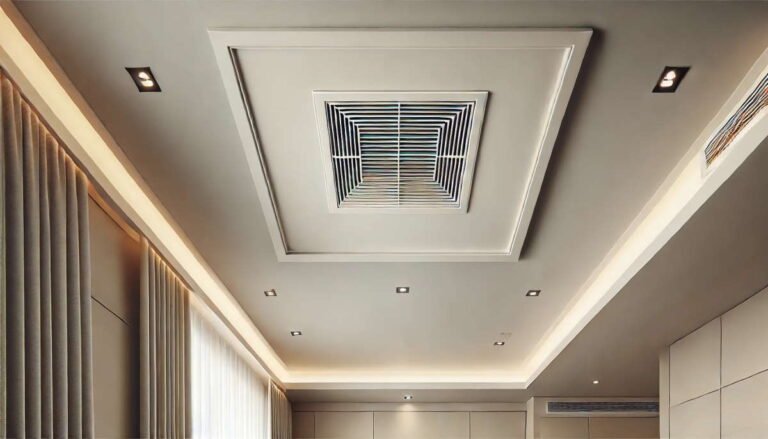
Tips and Tricks on How To Remove Bad Smell From The Air Ducts
The bad smell from the air ducts of your HVAC system is a common problem for many homeowners. Ductwork is the…
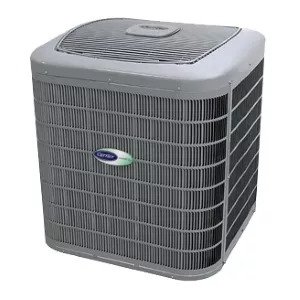
Heat Pump Not Cooling? Here’s What You Need to Know
Heat pumps are essential not only in the winter for heating our homes but also in the summer to cool…
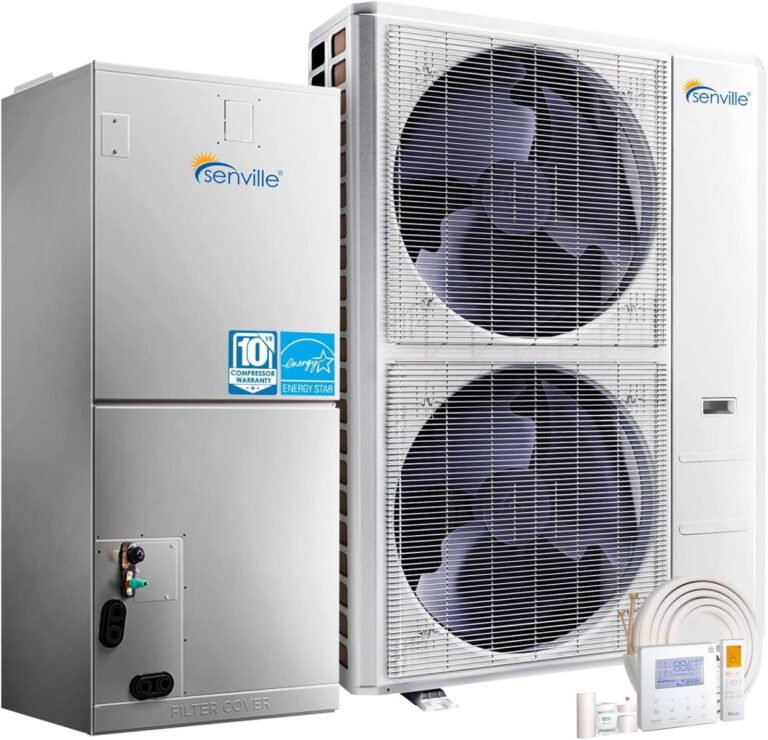
Compare Ductless Mini-Split Heat Pumps vs. Window Heat Pumps: Which Is Right for You?
In this article, we are going to look at ductless mini-split heat pumps vs. window heat pumps, examine how each…


